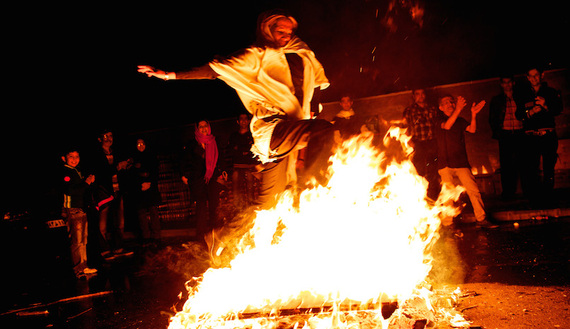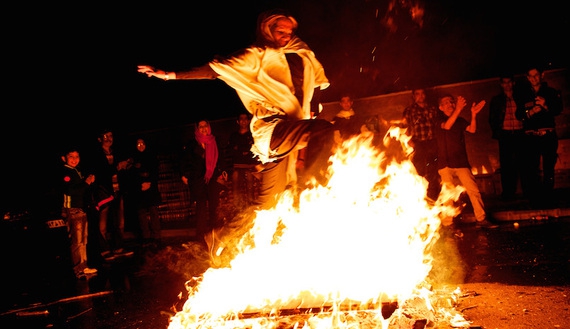 An Iranian woman jumps over a bonfire in southern Tehran on March 19, 2013, during the Wednesday Fire feast, or Chaharshanbe Suri. (photo by BEHROUZ MEHRI/AFP/Getty Images)[/caption]
An Iranian woman jumps over a bonfire in southern Tehran on March 19, 2013, during the Wednesday Fire feast, or Chaharshanbe Suri. (photo by BEHROUZ MEHRI/AFP/Getty Images)[/caption]Once again, the ancient Iranian festival�Chaharshanbe Suri, the eve of the last Wednesday before�the Iranian new year, was preceded by strong warnings from police and high-ranking officials. But the early celebrations and sound of firecrackers�over the last week or so in the streets of�Tehran�and other large cities�indicate�people's intention to keep the festival alive.
On March 1,�Taghi Mehri, head of the�Tehran�police's�Prevention Unit, announced a�prohibition�of marking�Chaharshanbe Suri. "Just like past years, police will take legal actions against those who bother people or block main streets," he said.
Chaharshanbe Suri translates into "Wednesday fire." Traditionally, Iranians, especially the youth, make bonfires in alleys and streets and jump over them. The act is meant to cross a threshold�symbolically from sickness to health, as many will recite the verse, �Give me your beautiful red color, take back my sickly pallor,� as they jump over the fire.
Iran's�conservative and extremist parties, though, have constantly announced their objection to the festival since the 1979 revolution.
Read more here











